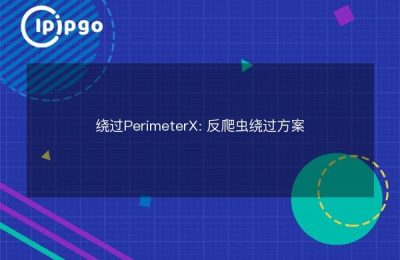
Requirements for automatic IP pool replacement in real scenarios
Cross-border e-commerce operations often encounter account anomalies, operation restrictions and other issues, the core pain point is a single IP address is recognized multiple times. Many sellers often encounter sudden interruptions when they set up timed tasks to upload products in the early hours of the morning, and it is easy to trigger the platform's wind-control mechanism when a multi-person collaborative team operates the store's background. By constructing a dynamic IP pool through proxy IP, it is possible to realize that different operating nodes use different network environments.
Core Logic Breakdown for Scripting Implementations
There are three core actions that need to be accomplished to automate the change script:Get Available IPs→Verify IP validity→Seamless switching between network environments. Let's take a Python script as an example:
Getting an IP pool using the ipipgo API
import requests
def get_proxy_pool():
api_url = "https://api.ipipgo.com/proxy"
params = {
"type": "residential",
"protocol": "socks5", "count": 10
"count": 10
}
response = requests.get(api_url, params=params)
return response.json()['proxies']
Verify IP validity (simplified version)
def check_proxy(proxy):
try.
test_url = "http://httpbin.org/ip"
resp = requests.get(test_url, proxies={"http": proxy}, timeout=5)
return True if resp.status_code == 200 else False
return False if resp.status_code == 200 else False
return False
Advantages of ipipgo's technology adaptation
There are obvious shortcomings in cross-border e-commerce scenarios of common agency service providers in the market:
| pain point scenario | ipipgo solutions |
|---|---|
| Domestic platform identifies server room IP | Real home residential IP, accessed via Tier 1 carriers |
| Requires country/city specific IP | Coverage of 240+ countries worldwide and support for city-level positioning |
| High-frequency operation triggers risk control | 90 million+ IP resource pools with dynamic rotation support |
Notes on real-world deployment
session holding mechanism: It is recommended to set a minimum IP survival time to avoid disconnection in the middle of critical operations such as order payment. For example, setting each IP to maintain at least 30 minutes of session can be realized by timestamp marking.
Traffic Distribution Policy: Dynamically adjust the type of IP pool according to the type of business. Commodity collection can use static IP to ensure stability, customer evaluation management is recommended to use dynamic IP to avoid correlation detection.
Frequently Asked Questions QA
Q: What is the appropriate frequency of IP replacement?
A: According to the adjustment of the platform's wind control intensity, new accounts are recommended to be replaced every hour, and mature accounts can be extended to daily replacement. Intelligent switching thresholds can be set through the ipipgo background.
Q: What should I do if my IP is suddenly unavailable?
A: A double validation mechanism should be built into the script to validate the IP immediately after the first acquisition and again before the actual business request. It is recommended to match the real-time availability monitoring interface provided by ipipgo.
Q: How to synchronize IP status for multiple devices?
A: IP usage records can be stored through caching services such as Redis. Key fields include: IP address, last time used, number of times used, and most recent response rate.
System Optimization Direction
Advanced users can addIP Quality Scoring Module, establish an IP weighting system based on dimensions such as response speed, geographic location accuracy, and historical success rate. Combined with the carrier data interface provided by ipipgo, we prioritize the selection of local mainstream carrier IP addresses.
For scenarios that require a fixed IP, enable ipipgo'sLong-lasting static IPservice, which ensures account security while maintaining IP fixity by setting up a whitelist to bind devices.








